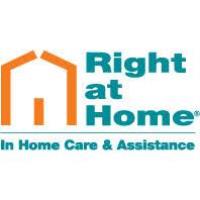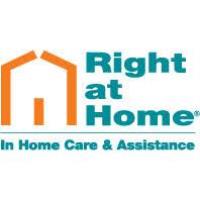Financing In-Home Care: Options for Aging in Place
At Right at Home, we know, most adults and adults living with chronic health conditions want to live at home for as long as possible. They want comfort, familiarity, and independence rather than moving to an assisted living residence. Fortunately, when everyday tasks become harder to managealone, in-home care can be the key to aging in place safely and with dignity. Still, families often ask the same pressing question: “How are we going to pay for this?” Here’s a breakdown of the most common ways to pay
Ready or Not... It's Here!
Yes, it’s here! As if you haven’t already read in the newspaper or heard on the news, or if you are relatively new to the area, the 2024 hurricane season began June 1 st . And it runs all the way through the end of November! NOW is the time to prepare! These storms, often spawning tornadoes, flooding, power outages and the like are especially menacing for the senior who lives alone and cannot summon immediate help! Remember the anxiety we all felt during prior hurricanes like Irma, Charley, Frances, and
Protecting Seniors From Financial Fraud: How To Spot and Prevent Scams
Financial fraud targeting older adults is a growing crisis, with new scams emerging every year. Criminals often prey on seniors to exploit their financial vulnerability. “Most people over the age of 62 are living off of a very limited set of resources,” says industry expert Kevin Nazemi in an interview with Fast Company magazine. “Typically, this is a Social Security check, and to the extent that they have savings, they’re decumulating.” With fewer opportunities to recover from financial losses,
How Solo Agers Can Live Safely With Parkinson's Disease
For older adults who live alone, managing a major health diagnosis like Parkinson's disease (PD) presents unique challenges. PD is a progressive neurological disorder that primarily affects movement, but it can also impair cognition. A solo ager recently informed of a PD diagnosis might expect to be told that they should move to an assisted living community right away. That may be necessary in the longer term, but depending on the extent of their impairment, they may be able
How Older Adults Can Overcome Hoarding Disorder
Feeling too embarrassed to invite people over. Having only a narrow pathway—through mounds ofaccumulatedstuff—towalkthrougheachroom. Being unable to cook a meal. Feeling isolated and lonely. Perhaps facing the threat of eviction.That’swhatlifecanbelikeforanyonewhohoards, a disorder that affects people of all ages but is more common among older adults. According to the American Psychiatric Association (APA), people age60andolderaremoresusceptiblethanothers to hoarding disorder, as are people who have anxiety
What Type of In- Home Caregiver Do You Need?
You think you or your loved one might need some help around the house, but you’re not sure what. You’ve done a bit of research, but the language can be confusing. What’s the difference between home care and home healthcare?Whatservicesdoesacompanionprovide? And most importantly, which services do you need?Eachtypeofservice,fromcompanioncaretoskillednursing care, caters to different needs and offers varying levels ofsupport.Knowingthedifferencescanhelpyoumake aninformeddecisionthat’sbestforyourfamily.Here’s
Easing Senior Isolation After the Winter Holidays
Helen, a vibrant 78-year-old who thrives in the hustle and bustle of the winter holiday season, hosts gatherings and participates in longstanding family traditions. Come January, the sudden silence of her home, now void of guests and decorations, can feel overwhelming. This abrupt shift from constant social interaction to minimal contact is one of the main reasons seniors feel lonely after the holidays. Helen’s situation is, sadly, very common. The winter holidays bring a flurry of activity and
Long Distance Caregiving: A Checklist for Holiday Visits
Holidays are a special time for family gatherings, laughter, and shared memories. They also present an opportunity for long-distance caregivers to check in on the well-being of their older loved ones. If you're traveling to see older family members this holiday season, you'll naturally be interested in their health and well being. Here are some things to consider during your visit that can help you help them from afar.What To Watch For During Your Visit 1. Physical health and safetyMobility and balance:
Aging in Place: A Comprehensives Guide to Planning for the Future
Are you planning to age in place-meaning you want to live in your own home and avoid the need to move to a senior residence or nursing home? Aging in one's own private sanctuary - where we may have lived for decades - may be the ideal, but it does take planning (along with healthy living and a share of good genetics). Planning to age in place involves more than just making physical adaptations to living spaces, such as improving lighting or adding grab bars. It requires big-picture planning that includes
Making a Safe Transition From Hospital to Home
Coming home from a hospital or nursing home stay is such a relief-finally, back in one's own space! But the transition involves more than just moving locations-it's about the patient adapting to a new daily routine, managing health conditions, and perhaps dealing with new limits on what they can do. A smooth transition can lower the risk of problems, prevent returns to the hospital, and help recovery happen faster. That's why, if at all possible, patients should begin planning for their transition back
How Keeping a Journal Helps Dementia Caregivers
Caring for a loved one with dementia presents unique challenges that can be overwhelming; not just with the loved one's illness and the huge life changes coming, but with the caregiver's own feelings and struggles too. Keeping a detailed journal is an organized way to record the progress and effects of the patients’ dementia-helpful information for their doctors. But it can also provide emotional and psychological benefits for caregivers themselves. Whether you're caring for someone with dementia or another
Tough Conversations: When Is It Time for Seniors To Stop Driving?
Driving is more than just a mode of transportation; it’s a symbol of independence that many cherish. However, as we age, it becomes crucial to recognize when driving may no longer be safe. The decision to stop driving is significant and depends on a person’s ability rather than age. The decision can be influenced by a gradual change in ability or a sudden shift due to illness or other factors.Typical changes caused by aging often affect driving abilities. For example, changes in depth perception are very
How To Stay Active and Thrive After Retirement
Retirement marks a significant transition from decades of routine-driven days to newfound freedom. That can be either scary or exciting—or, more likely, a combination of the two. While the prospect of long, unstructured days may seem appealing to older adults, it can also affect them in a negative way. The solution: staying active, both mentally and physically. Staying active is crucial for maintaining physical and mental health, continuing personal growth, and avoiding the pitfalls of isolation during















